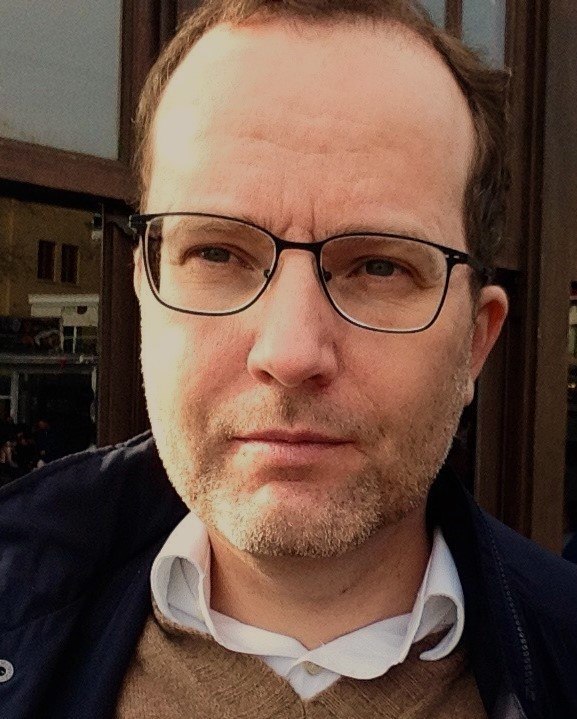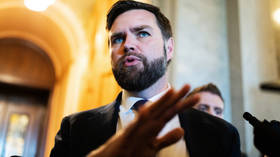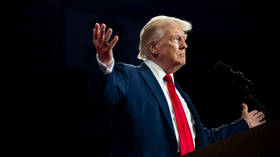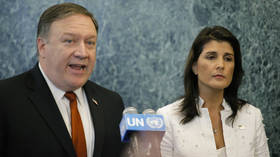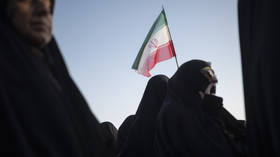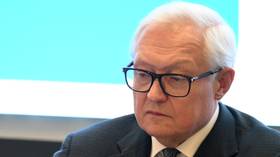How real are the latest claims about the Bidens’ links to Ukrainian corruption?
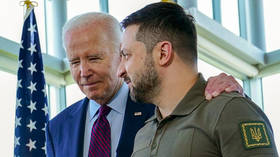
At first it feels like a blast from the past but it's really about the present and future: Journalist Simona Mangiante Papadopoulos has released a long interview with former Ukrainian MP Andrey Derkach. In which Derkach makes allegations about corruption in the US and Ukraine. In particular about the American President Joe Biden and Secretary of State Antony Blinken.
With regard to graft, while the various allegations (by no means only Derkach’s) and ongoing investigations are complex, in essence several simple questions are at stake: Did the current president’s son, Hunter Biden, sell his services as a Washington influence-peddler by using the “brand” (as one witness, Devon Archer, has put it) of his father’s connections (as then vice-president under Barack Obama)? And, potentially even more disturbingly, did the elder Biden himself profit from such influence-peddling? Finally, most disconcerting of all, did the current president use his leverage as Obama’s point-man on Ukraine to shield his son and, possibly, himself from investigations in Ukraine? Including by bringing down Ukrainian chief prosecutor Viktor Shokin, who got too close to the truth about Hunter Biden’s shady role in the Ukrainian Burisma gas company?
In sum, did the highest-ranking American official, charged with overseeing (among other things) Kiev’s putative “fight against corruption,” make things even worse by injecting a strong dose of US-establishment corruption into Washington’s newest client state? And, if so, could that two-sided entanglement have left a legacy, including of compromising actions, that has been influencing America’s reckless and failing (even on its own misconceived terms) proxy war policy in Ukraine?
Full disclosure: I happen to believe that the answer to all these questions is yes. Which is depressing, since it means that decisions, costing many human lives and making our shared global politics very dangerous, have been influenced by corrupt motives reminiscent of the world of organized crime.
But we do not know, yet. It is certain that Hunter Biden, a textbook failed-son and pampered heir, used his dad’s name to cash in, to the tune of (at the very east) $7.5 million. That much even the pro-Biden Washington Post had to admit (while revealing its bias with the packaging of the story, which accuses Republicans of “hyping” the numbers). As to whether Joe Biden himself also got a share and how all of this affected his policy on Ukraine – compelling proof, as opposed to plausible conjecture, is not available. At least at this point. But the Republicans, for their own selfish yet, politically, perfectly normal reasons, are digging for it through an impeachment inquiry into the current president’s record.
This is the background against which Derkach has now spoken up. Make no mistake: There will be attempts to dismiss all of this as – yes, you guessed it – the beginning of BIG BAD RUSSIAN MEDDLING in the 2024 presidential elections. In fact, they have already started. Frankly, yawn: Let’s not be distracted.
Such attempts will inevitably seek to make use of Mangiante Papadopoulos’ and Derkach’s own records. Mangiante Papadopoulos is a journalist and the wife of the former Trump campaign adviser George Papadopoulos. As such (though, to be precise, still his girlfriend at the time), she was questioned by the FBI in 2017, during the hot phase of the neo-McCarthyite campaign commonly known under the misleading label “Russiagate.”
Misleading because it was not really about Russia, but about the American Democrats’ foul-play attempt to undermine the reality of Donald Trump’s victory in 2016. (which was really down to Trump’s gifts as a populist and the Democrats’ arrogant decision to try and ram down the country’s throat the unelectably unappealing and politically terrifying candidacy of Hillary Clinton.)
“Russiagate” was, in reality, Russia Rage, a mix of Centrist and Liberal conspiracy theory-mongering and mass hysteria. The true scandal was that a sizable part of the US political and media establishment further ruined what was left of any working relationship with Russia, and undermined the American public’s faith in a legitimate election result. (No, Trump was not the first one to do so in 2020/21: The roots of the January 6 riot in Washington are deeply bipartisan.)
Derkach came to international attention a few years later, with respect to Trump’s successor. A Russian-Ukrainian businessman and politician (who is open about receiving elite Russian intelligence training in the early 1990s), American and Ukrainian officials have accused him of playing an important role in “meddling” in the election of 2020, specifically by helping undermine Biden’s reputation. Derkach released recordings of what he claimed were conversations between then-vice-president Biden and then-Ukrainian president Pyotr Poroshenko that, critics argued, pointed to illicit dealings. (Ironically enough, for a while these revelations were welcomed by the team of Poroshenko’s successor Vladimir Zelensky because they embarrassed his opponent.)
Derkach has also been accused of – and in Ukraine formally charged with – working for Russian intelligence and with treason. No wonder he fled the country in 2022 and now lives in exile in Belarus. The 56-year-old is, in sum, a very ambiguous figure whose statements should be treated with caution.
Yet they should not be dismissed wholesale. Simply branding anything inconvenient to the American Democrats and their media clique as “information warfare” or “Russian meddling” is how “Russiagate” has done so much damage. That was, after all, the manner in which the authentic and very relevant news about the compromising data on Hunter Biden’s abandoned laptop was suppressed before his father’s election. If the evidence pointing to corruption (and revolting personal depravity) had been allowed to be subjected to ordinary scrutiny and public debate – as it certainly would have been if it had concerned a member of the Trump family – the chances of Biden senior would have suffered.
Derkach is a complicated source; Mangiante Papadopoulos has also been accused of promoting Russia’s interests. (But then, frankly, who hasn’t?) But the question among adult observers is not who may be interested in a given piece of information seeing the light of day. Because here’s a little secret: As long as the information is of any political relevance at all, there’s always someone interested (as, by the way, Derkach openly admits in the interview, as far as his case is concerned). And here’s another one: That doesn’t mean that a given piece of information is untrue (“disinformation,” as we have been trained to say now). And finally: Remember, interests are involved not only in revealing, but also in hiding facts. Or, indeed, in pooh-poohing inconvenient revelations as nothing but propaganda.
So, what to make of what Derkach has had to say now? In the interview, which is almost an hour long, he makes many detailed statements, involving a large number of specified persons, especially in Ukraine. Let’s try to focus on key aspects and look at three of his most striking allegations one by one.
First, Derkach states that the Ukrainian authorities started going after him in earnest, including by extra-legal and life-threatening means, when (or because?) US Secretary of State Antony Blinken told them to resolve that Derkach problem. The interview is somewhat ambiguous: Is Derkach saying that Blinken himself gave, in essence, an order to use criminal methods or that Blinken – Henry II/Thomas Becket-style – “merely” called for someone to somehow rid his president of that turbulent Ukrainian?
Either way, it would have been a highly incriminating and tawdry act on Blinken’s part. But it would be naive to consider the current Secretary of State incapable of stooping so low. We are, after all, talking about the man who, during Biden’s election campaign, played a devious behind-the-scenes role in organizing the suppression of the Hunter Biden laptop story.
Back then, by mobilizing the American intelligence community to, once again, serve party-political purposes, Blinken helped Biden win and, in the long term, further shredded what’s left of American establishment credibility. (Not to mention that, currently, Blinken is displaying his absolute legal nihilism in stunning fashion by shielding Israel’s genocidal attack on Gaza.)
Secondly, Derkach also maintains that former Ukrainian chief prosecutor Viktor Shokin, who lost his job for going after a Biden (or was it even two of them?), is in danger of assassination and should receive help to leave Ukraine. What makes this claim sound improbable is the fact that Shokin is still alive. What makes it plausible is the fact that there has already been at least one attempt on his life, although that took place years ago when he was still in office: As a matter of fact, for Shokin, losing his job may have made losing his life less likely.
Third, Derkach claims that, inside Ukraine, a large bribe linked to the fallout from the Burisma affair has been turned into funding for the Ukrainian intelligence services, in particular for assassinations in Russia and the attack on the Nord Stream gas pipelines. Can he prove this specific connection, namely that precisely that dirty money was used for this dark purpose? Maybe, maybe not. Yet there is no doubt that Ukraine’s military intelligence service in particular has organized assassinations. Indeed, some Western media have quite openly sung its praises for this, such as The Economist.
As regards Nord Stream, after an initial period of plainly silly Western disinformation absurdly trying to point the finger at Russia (anyone remember that?), it is now fashionable to blame it all on Ukraine, as if the latter could have acted without NATO permission and assistance. So, here as well Derkach gets a grade of 'at least partly true'; and his allegation about how some of these activities have been financed cannot be dismissed as implausible either.
Let’s return, however, to the biggest issue at stake here: the Bidens. And let’s note a simple but generally overlooked fact: They are amazingly good at lowering expectations. They and their media allies are engaged in an ongoing, largely successful operation of shifting US baselines even farther down: In a normal country, there simply should not be an endless, partisan struggle over whether and how much money exactly went to the current president personally. In a normal country, the fact that, at the very least, Joe Biden has long tolerated, facilitated (to one extent or the other) and, finally, defended and shielded the screamingly unethical behavior of his son, should be more than enough to have forced him to resign.
The statements, views and opinions expressed in this column are solely those of the author and do not necessarily represent those of RT.
